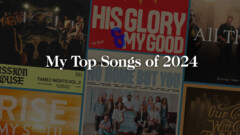Someone sent me the following article yesterday. I have searched in vain to find a source to link to for it. I understand that it was written by Dr Peter Hammond, but that is about all I know. It provides an interesting perspective on the Olympic games.
Various newspaper articles, media networks and the Olympic website have made reference to the fact that in AD393, the Roman emperor Theodosius banned the Olympic games for “being too pagan”. Some have also mentioned that under the emperor’s direction, fanatical Christians closed and later tore down the temple (of Zeus) built in Olympia. Numerous reports have characterised Christians as anti-sport – even though many Christian athletes are performing in these games.
It is worth noting that the original Olympians were professionals – they trained and competed fulltime, profiting royally from their wins, receiving huge amounts of cash, pensions and slaves as prizes. The original Olympic Games were thoroughly pagan. Before the games began, competitors went in procession to the village of Piera, there priests offered an animal sacrifice to Zeus. Then the athletes participated in a religious ceremony of purification and large numbers of animals were sacrificed before the colossal statue of Zeus in the Olympia. The athletes swore allegiance to the Greek gods and specifically to Zeus.
Winners of the events visited the temple of Zeus to sacrifice to the gods. The opening procession, where priests carried glowing embers from the fire of the goddess Hestia, was carried on past spectators singing a hymn to Zeus. Arriving at the temple of Zeus, the priests mounted the steps and lit the fire in the altar with the embers. There they slaughtered and sacrificed a hundred bulls.
In the original Olympics, men competed in the nude. Married women were not allowed in the stands, woman who flouted this prohibition risked being pitched headfirst off the nearby cliffs. Unmarried women were allowed to watch and prostitutes from the temple of Aphrodite were available to the winners.
The original Olympics were also incredibly violent. One of the most popular events at the ancient games was the Four-Horse Chariot Race which often resulted in multiple spills, accidents and gory pile-ups. Numerous participants were disfigured beyond recognition.
The Olympics also featured a “ferocious, no holds barred brawl known as the Pankration.a vicious mix of wrestling, boxing and street fighting in which punches, kicks to the groin, shoulder and ankle dislocations and choke holds were allowed.” One famous contestant specialised in breaking his opponent’s fingers. One Damoxenos jabbed his opponents with the fingers so violently that he would pierce men’s ribcages and yank out their intestines. (Christian History)
Hence, when on 24 February 391AD the emperor Theodosius began issuing the series of decrees that effectively outlawed all pagan sacrifices, divination, and occult rituals, one can understand how this led to the closing down of the original Olympics.
Christians were not hostile to sport in and of itself. There are numerous positive references to physical exercise and running the race in the Scriptures. “For physical training is of some value.” 1 Timothy 4:8; “Run in such a way as to get the prize. Everyone who competes in the games goes into strict training. They do it to get a crown that will not last; but we do it to get a crown that will last forever. Therefore I do not run like a man running aimlessly; I do not fight like a man beating air. No, I beat my body and make it my slave so that after I have preached to others I myself will not be disqualified from the prize.” 1 Corinthians 9:24 – 27; “I have fought the good fight, I have finished the race, I have kept the faith.” 2 Timothy 4:7
The third century minister Hippolytus listed 24 vocations forbidden to Christians in his book Apostolic Traditions. Eight of these involved brutality, including chariot driving.
Fortunately, today, athletes are no longer required to sacrifice animals to Zeus, and cruelty to animals and brutality to fellow contestants is no longer on the Olympic programme. However, after the Atlanta Olympics in 1996, one reporter noted: “The spirit behind Zeus, the ancient god of the Olympics, would have been pleased. Never has so large a flock sung his hymn and cheered his sacred flame. Never have so many people celebrated the timeless ritual involving earth centred spirits and the tribes they inspire.” The Olympic Dream by Berit Kjos
Those who think that the present Olympic Games have nothing to do with the mythological paganism of Ancient Greece should consider the present day Olympic anthem: “Ancient Immortal Spirit, chaste Father of all that is Beauty, Grandeur and Truth descending appear with thy presence, illumin thy earth and the heavens. Shine upon noble endeavours wrought at the games, on track and in the field.to thine Temple, to thine worship, come all. O Ancient Eternal Spirit!”
One description of the opening ceremony of the 2004 Olympics in Athens observed: “A centaur (half human, half horse) launches into the darkness a javelin, a shaft of light arching through the air. Then the Greek god Eros descends over scantily clad lovers sensually clutching and releasing each other as they folic in the water.the procession of Greek history begins with float after float.culminating in the persona of the goddess Athena and replica of the Parthenon – religion. Over all this, Eros hovers, as though the god of love is guiding the course of history.”
If the Olympics are only about sports, then why are the increasingly pagan opening ceremonies glorifying ancient religions – all of which practiced animal and human sacrifices, infanticide, slavery and brutal oppression of women?
There is a pervasive tendency to ignore our Christian heritage and how Christianity introduced a respect for life and liberty that was completely unknown before the coming of Jesus Christ. In the ancient world, the teachings of Jesus Christ halted infanticide, emancipated women, abolished slavery, inspired the first charities and relief organisations, created hospitals, established orphanages and founded schools. In the medieval times, Christianity built libraries, invented colleges and universities, dignified labour and converted the barbarians. In the modern era, Christian teaching has advanced science, elevated political, social and economic freedom, promoted justice and provided the greatest inspiration for the most magnificent achievements in art, architecture, music and literature.
Christianity has been the most powerful agent in transforming society for the better across 2000 years. No other religion, philosophy, teaching, nation or movement has so changed the world for the better as Christianity has done. Yet at the Olympics billions of people worldwide choose to unite in pagan worship rather than acknowledging our Creator, Saviour and eternal Judge.
“Therefore, since we are surrounded by such a great cloud of witnesses, let us throw off everything that hinders and the sin that so easily entangles, and let us run with perseverance the race marked out for us. Let us fix our eyes on Jesus, the Author and Perfector of our faith.” Hebrews 12:1-2









